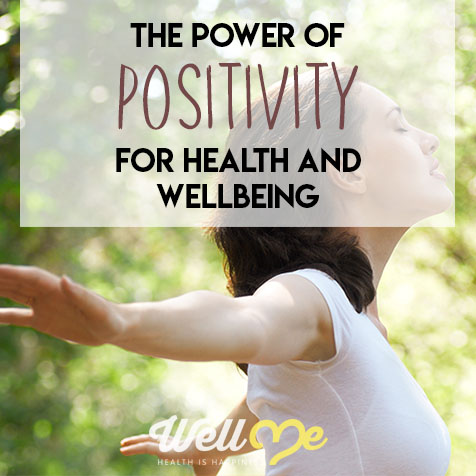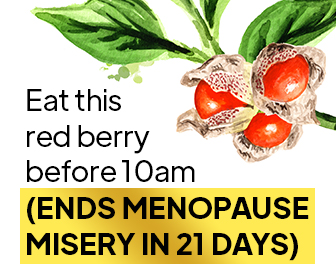For the past few decades, there has been a cultural shift toward positivity.
Many people practice some form of naïve optimism, but that’s not what this article is going to cover. True positivity has some benefits to your health and wellness that you probably didn’t know. In this article, we’re going to provide a brief outline of the science and clinical psychology of positivity, as well as actionable techniques that will allow you to be more positive no matter what’s happening in your life.
What is Positivity?
 Positivity refers to a mindset or perspective in which you choose to the best in life – it looks at the uncertainty of the future as a source of opportunity rather than a threat. It is a conscious choice to focus on seeing the good and living in a way that celebrates the good things around you. Positivity can be difficult to foster and maintain because stress is a constant and many people carry a huge burden of stress, making it easy to be negative and pessimistic about life.
Positivity refers to a mindset or perspective in which you choose to the best in life – it looks at the uncertainty of the future as a source of opportunity rather than a threat. It is a conscious choice to focus on seeing the good and living in a way that celebrates the good things around you. Positivity can be difficult to foster and maintain because stress is a constant and many people carry a huge burden of stress, making it easy to be negative and pessimistic about life.
What you need to realize, however, is that positivity is great for your life and your health, even if you have a lot of stress, and you can actively improve your positivity. Keep reading to learn how.
The Power of Positivity: How Does it Affect Health?

Positivity is not just a way of looking at the world that makes you happier (though it will do that), it is a way of adjusting the frameworks of meaning and perception in your mind. This can impact everything from your health and wellness to your social performance – even the way the world looks to you. This sounds corny, but the way you perceive the world is ordered by the things you consider meaningful and important.
Positivity contributes to an improved mood and better resilience to stress – both of these things are incredibly important for keeping long-term health and happiness. When you are stressed or unhappy, the body releases cortisol, a chemical that can push the immune system into overdrive and contribute to oxidative damage which is a key factor in cancer risk and degenerative diseases. Practicing positivity and a realistic, but optimistic, mindset can reduce the burden of stress and your body will feel the benefits.
A Positive Outlook Can Improve Sleep Quality
 Another practical benefit of having a positive outlook on life is the improvement of sleep quality and quantity. When you are stressed, your body is in a heightened sense of emergency – if you adopt a positive outlook, instead you will decrease stress and anxiety which will improve GABA release.
Another practical benefit of having a positive outlook on life is the improvement of sleep quality and quantity. When you are stressed, your body is in a heightened sense of emergency – if you adopt a positive outlook, instead you will decrease stress and anxiety which will improve GABA release.
GABA is a fantastic compound that acts to relax the body, improve sleep, and maintain proper hormonal balance. This means better quality of sleep: less tossing and turning, fewer nightmares, faster recovery, better muscle gains, and improved fat loss. You can also expect better energy during the day and improved cognitive performance. You don’t have to be smart to stay positive, but staying positive will definitely help you get ahead.
How Can You Improve Positivity?
Positivity is easier for some people than others – we all have a certain genetic disposition towards handling stress. Some individuals can pile up the responsibilities and never struggle to keep happy, while others feel bleak at all times. Personality type plays a huge role – there are “type A” personalities who are able to treat the obstacles in life as challenges, whereas “type B” personalities tend to treat obstacles as external conditions of life over which they have no control.
 Positivity is closely linked to two major measures of personality: conscientiousness and neuroticism. Neuroticism refers to how stress-resistant you are and conscientiousness is a measure of how industrious and organized you are.
Positivity is closely linked to two major measures of personality: conscientiousness and neuroticism. Neuroticism refers to how stress-resistant you are and conscientiousness is a measure of how industrious and organized you are.
Increasing orderliness is a great way to improve your positivity as it orders your life and makes it more manageable. The things that used to cause you anxiety can be disarmed when you improve your planning and organization. To improve your organization, try practicing making plans, keeping a journal, attending earlier commitments, and developing other positive habits.
Dealing with neuroticism is a persistent problem in clinical psychology: being resistant to stress and anxiety is like a modern-day superpower. Neuroticism decreases as you age and mature, but proper cognitive-behavioural strategies associated with active positivity also decrease neuroticism.
Cognitive approaches to reducing neuroticism rely on voluntarily exposing yourself to the things that induce anxiety and make you uncomfortable. For example, if money and accounting make you anxious, you should spend time learning about budgeting, finance, and order your accounts. By choosing to confront these stressors, you increase your mental strength and resilience.
Meditation and Relaxation
 While it is possible to adjust your personality to be more positive and stress-resilient, there are also short-term methods for improving positivity during particularly difficult times and returning you to the proper mind-set.
While it is possible to adjust your personality to be more positive and stress-resilient, there are also short-term methods for improving positivity during particularly difficult times and returning you to the proper mind-set.
The first and most popular method is to meditate. This isn’t always associated with yoga or Buddhist teachings: meditation is as simple as actively relaxing, clearing the mind, and aiming at achieving an internal peace. There are many guides on the internet to get you started, but we recommend just spending some time trying to be calm and empty. Many of us spend time exciting ourselves and “hyping up”, but very little time is dedicated to relaxation and winding down. These techniques can relax you, ease your stress, and contribute to viewing life more positively.
Many people believe that being positive is either the result of having a fantastic, privileged life or a genetic gift that makes life seem fantastic. In reality, you can be positive and gain the benefits no matter what your life is like and no matter what your personality – neither your circumstances or personality are set in stone and a mixture of cognitive, organizational, and active-relaxation methods can improve your positivity and keep you feeling good even when life throws you curveballs.








